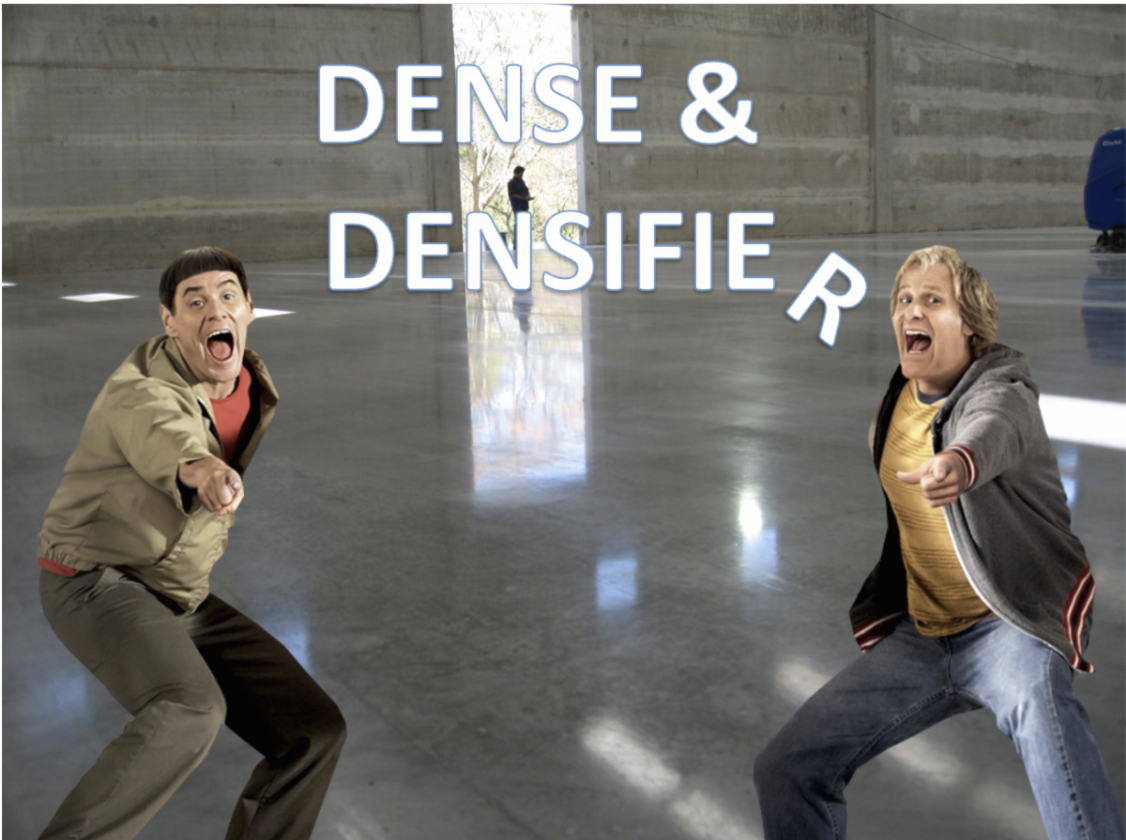Coming to a Warehouse Floor Near You!!!
You've got a warehouse floor, a distribution center or a polished concrete project and you're not going to use a colloidal silicate to treat it?!? What are you? Dense?
Concrete Densifiers are a staple in the concrete world. They can help make concrete more durable, more reflective, and less porous. But many designers are still unsure about how they work and how they're supposed to be used.
To fully understand, we have to put our science hats on for a second and look at what's happening with freshly placed concrete. When the cement in a concrete mix goes through it's hydration process, it leaves a by-product behind called Calcium Hydroxide. Calcium Hydroxide is that dusty substance you'll see often times after newly poured concrete is cured. Basically, the silicate chemicals in various densifiers react with that dusty stuff and fill the pore structure of the concrete, thus densifying it.
Not a "sealer"
While densifiers can help increase water-repellency, they are not a "sealer" in the true sense. The increased density will slow liquids from absorbing but they will not fully prevent it. So if you have environments that are going to be constantly wet or exposed to other chemicals, you’ll probably need to look at an epoxy or other membrane forming material.
Here's what densifiers can do: For a low cost of application and installation, you'll have concrete that resists wear from abrasion, repels water, and reduces the appearance of tire marks and stains. Euclid’s Diamond Hard is the gold standard of densifiers in this space, used by the worlds largest retailers for their warehouse’s and distribution centers.
If you want even more information on densifiers, watch this quick overview video I made and "Totally REDEEM YOURSELF!"
